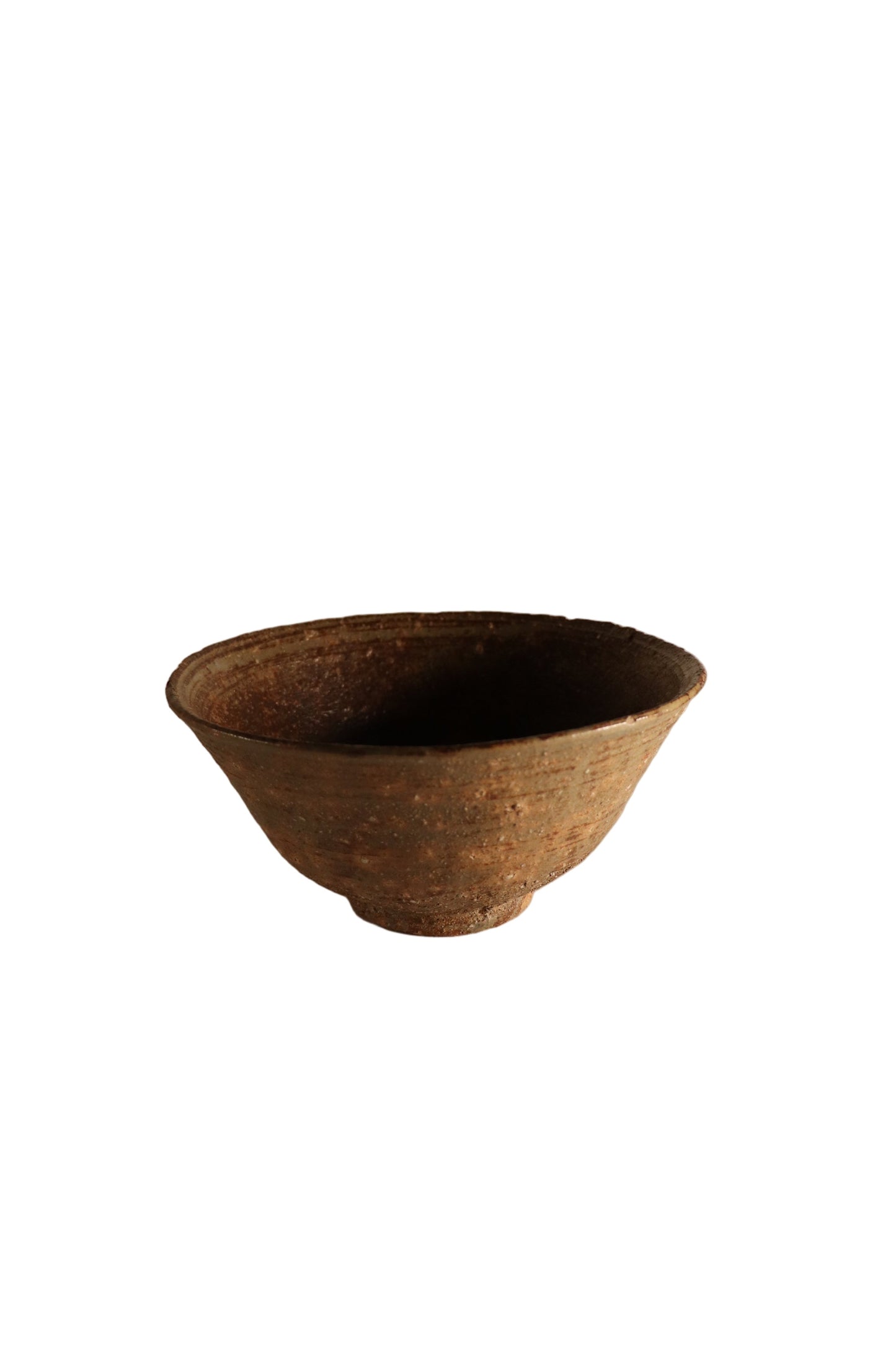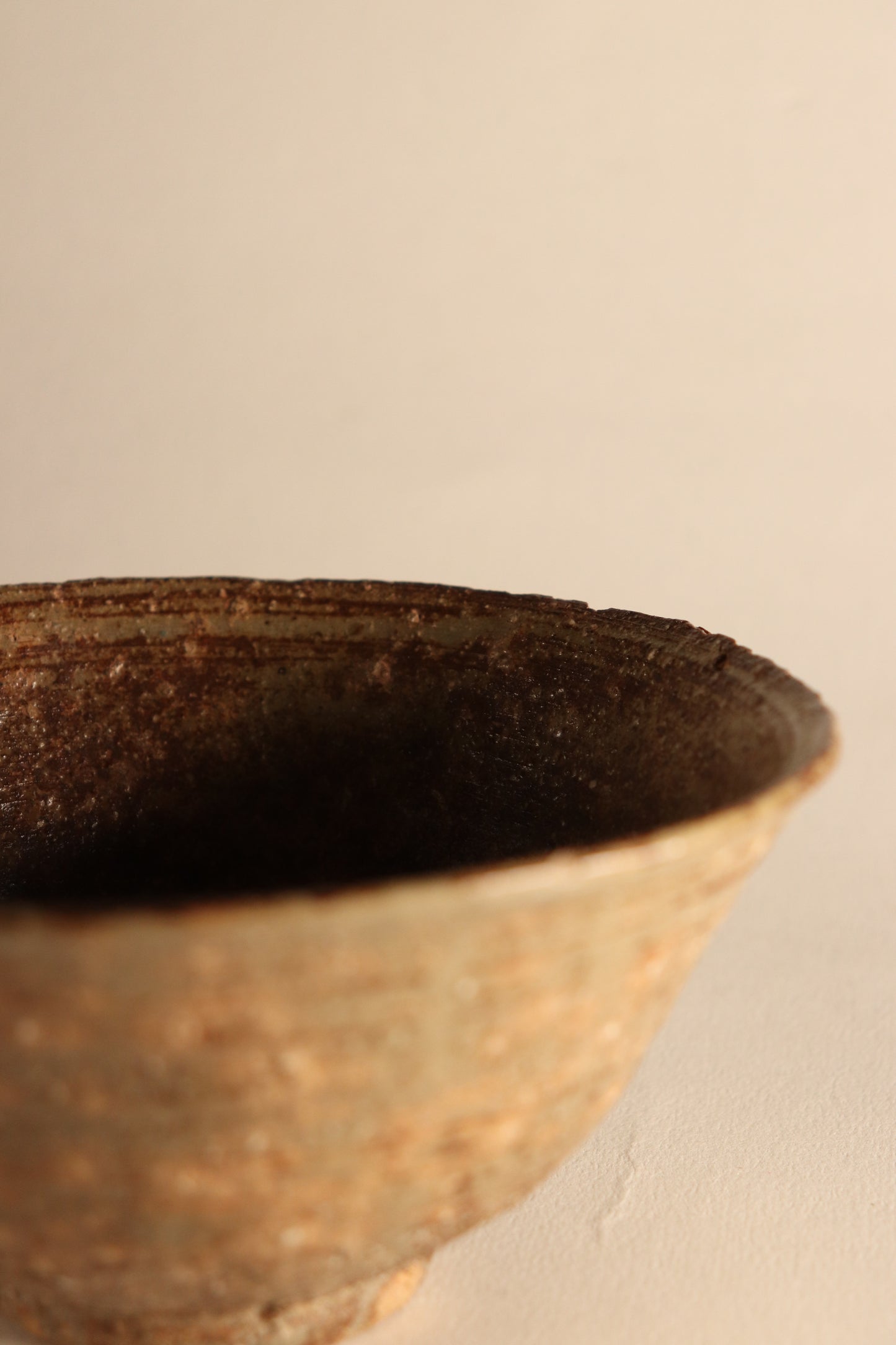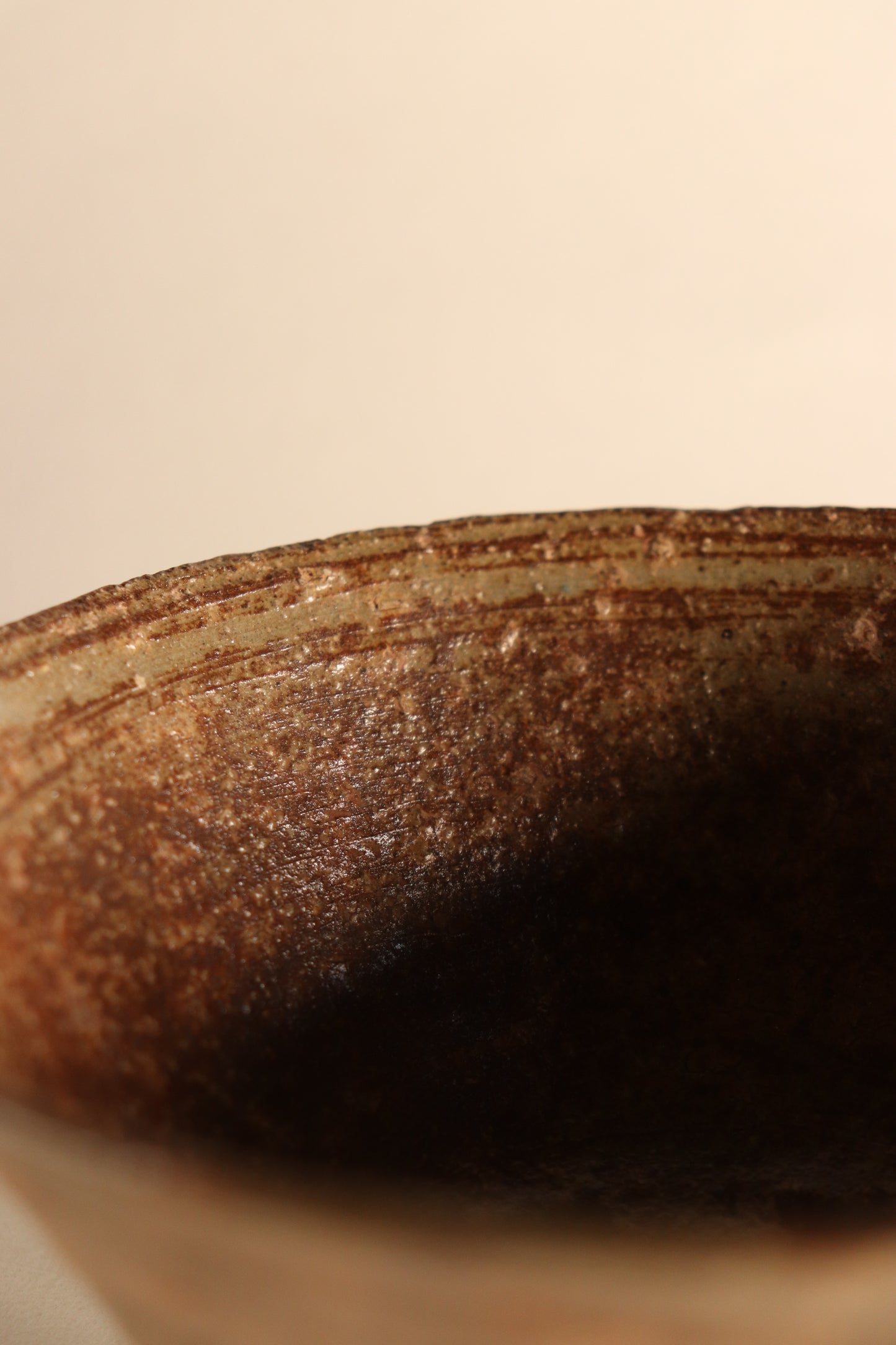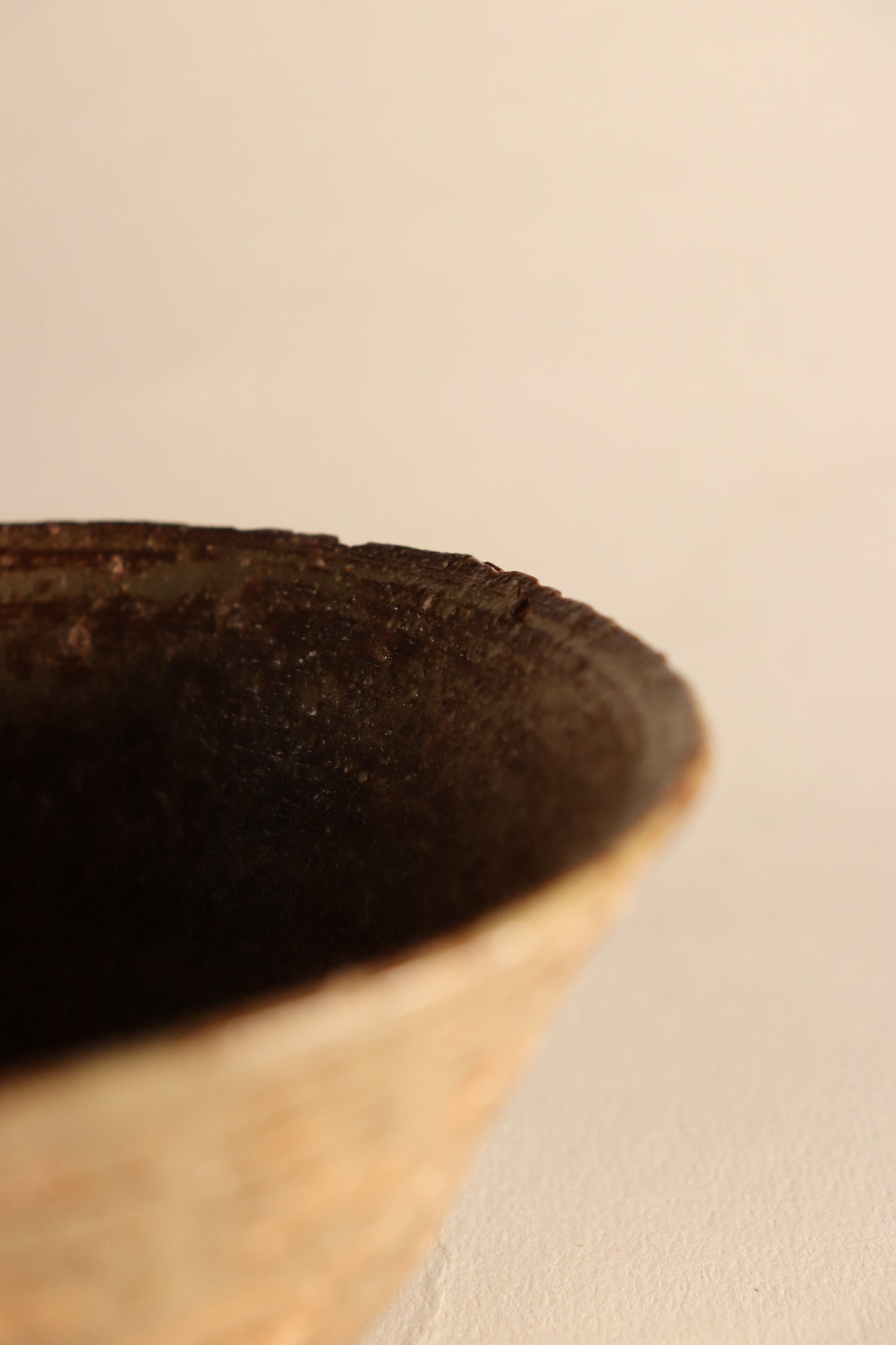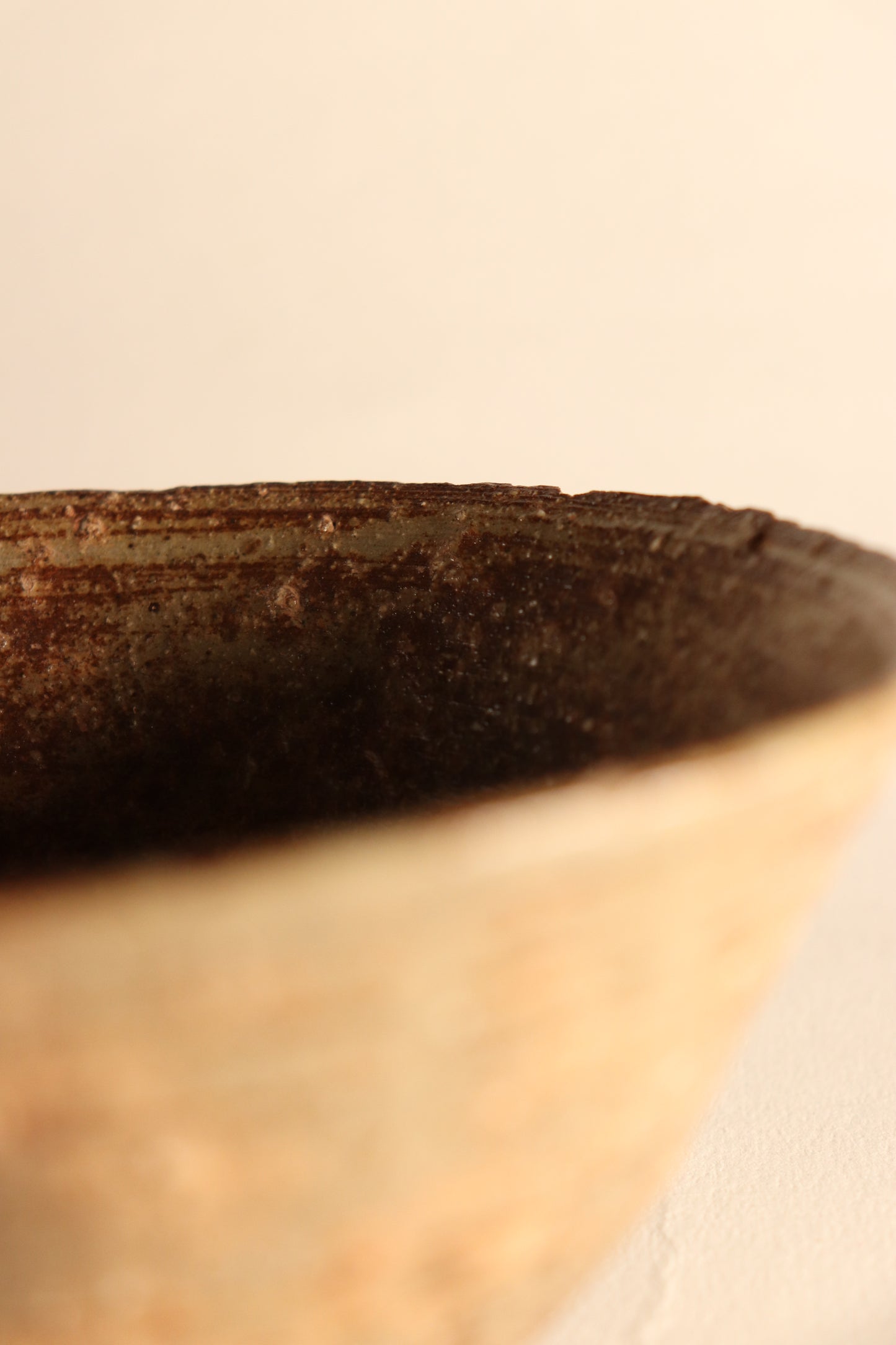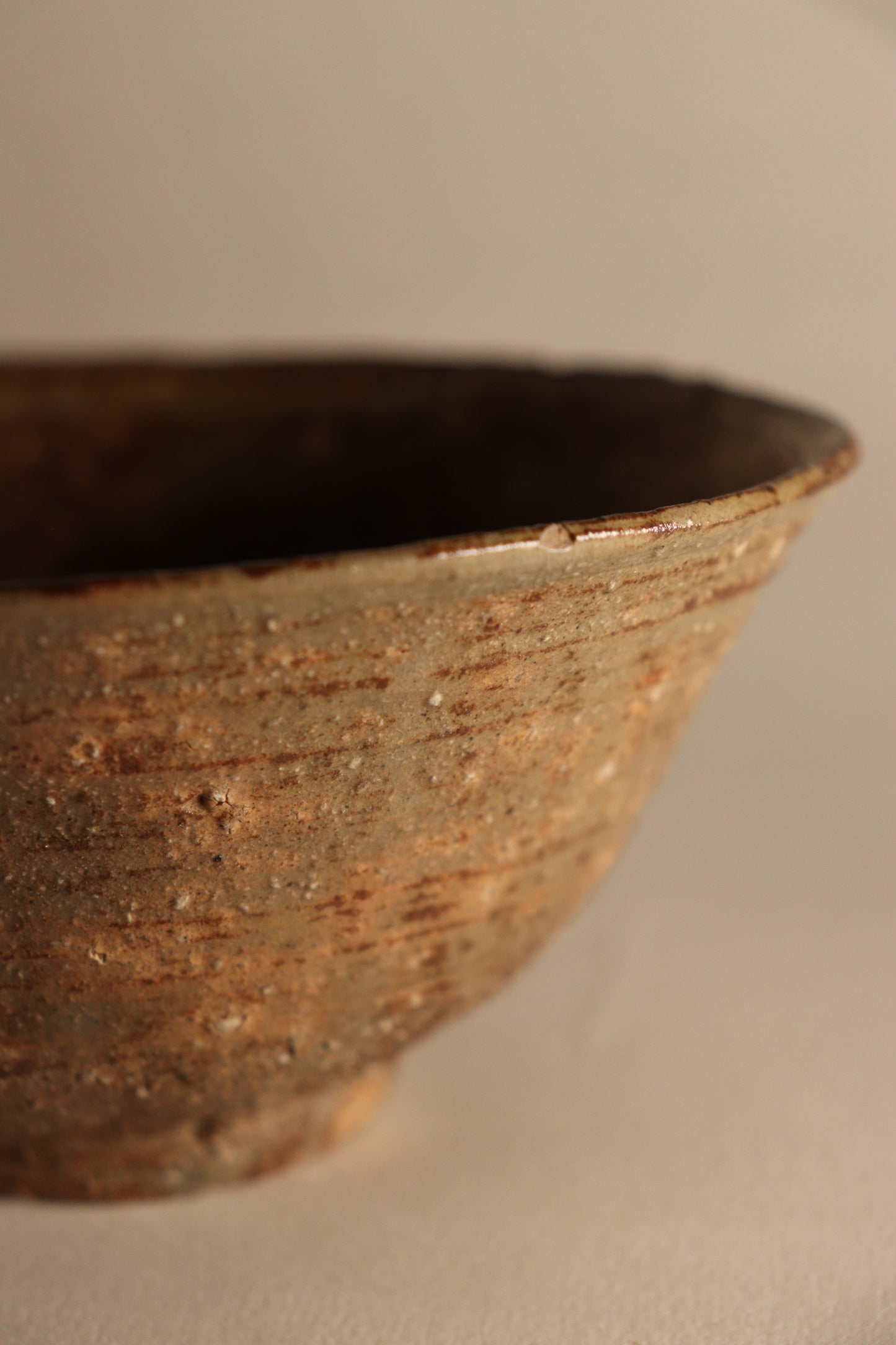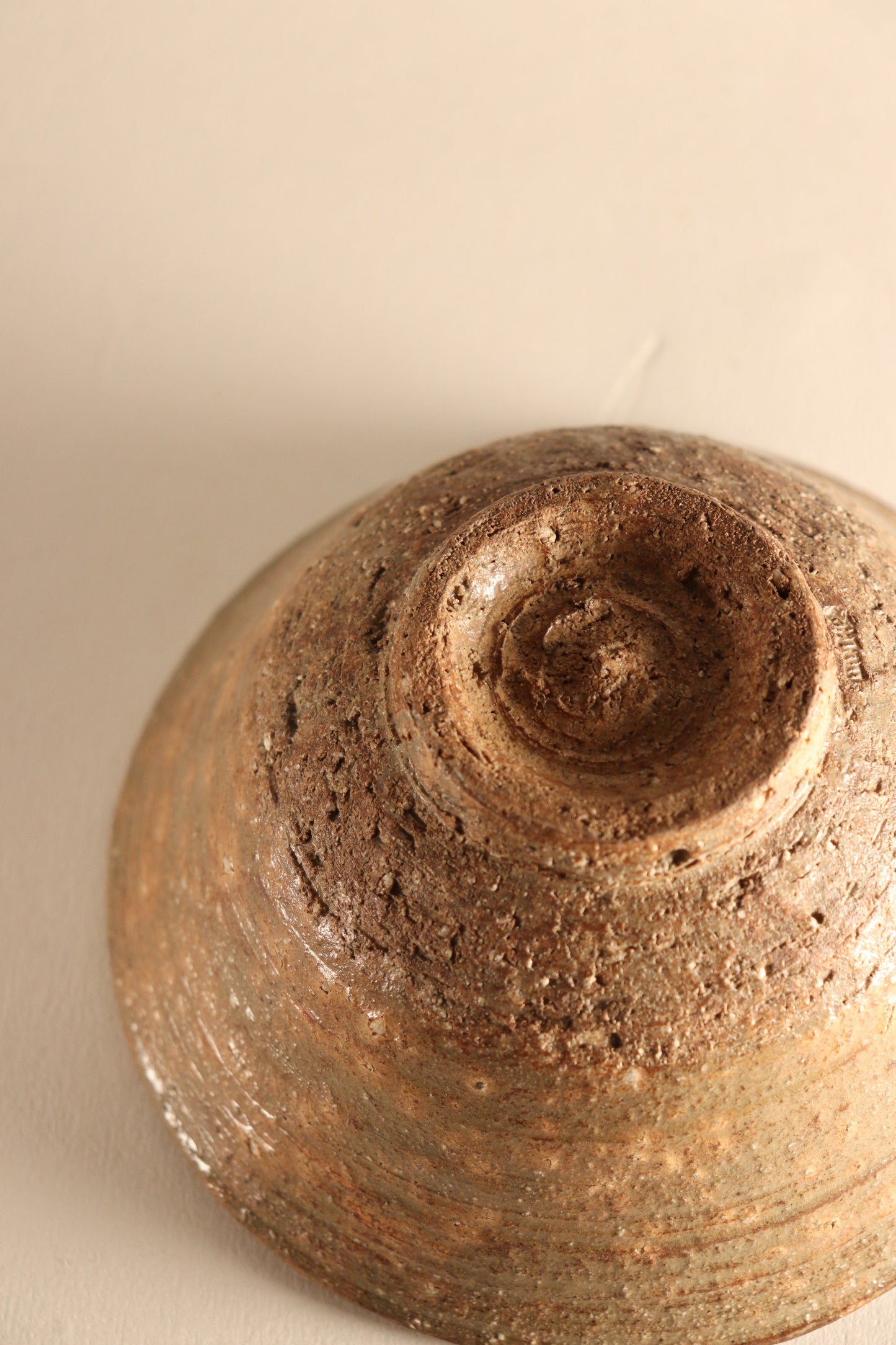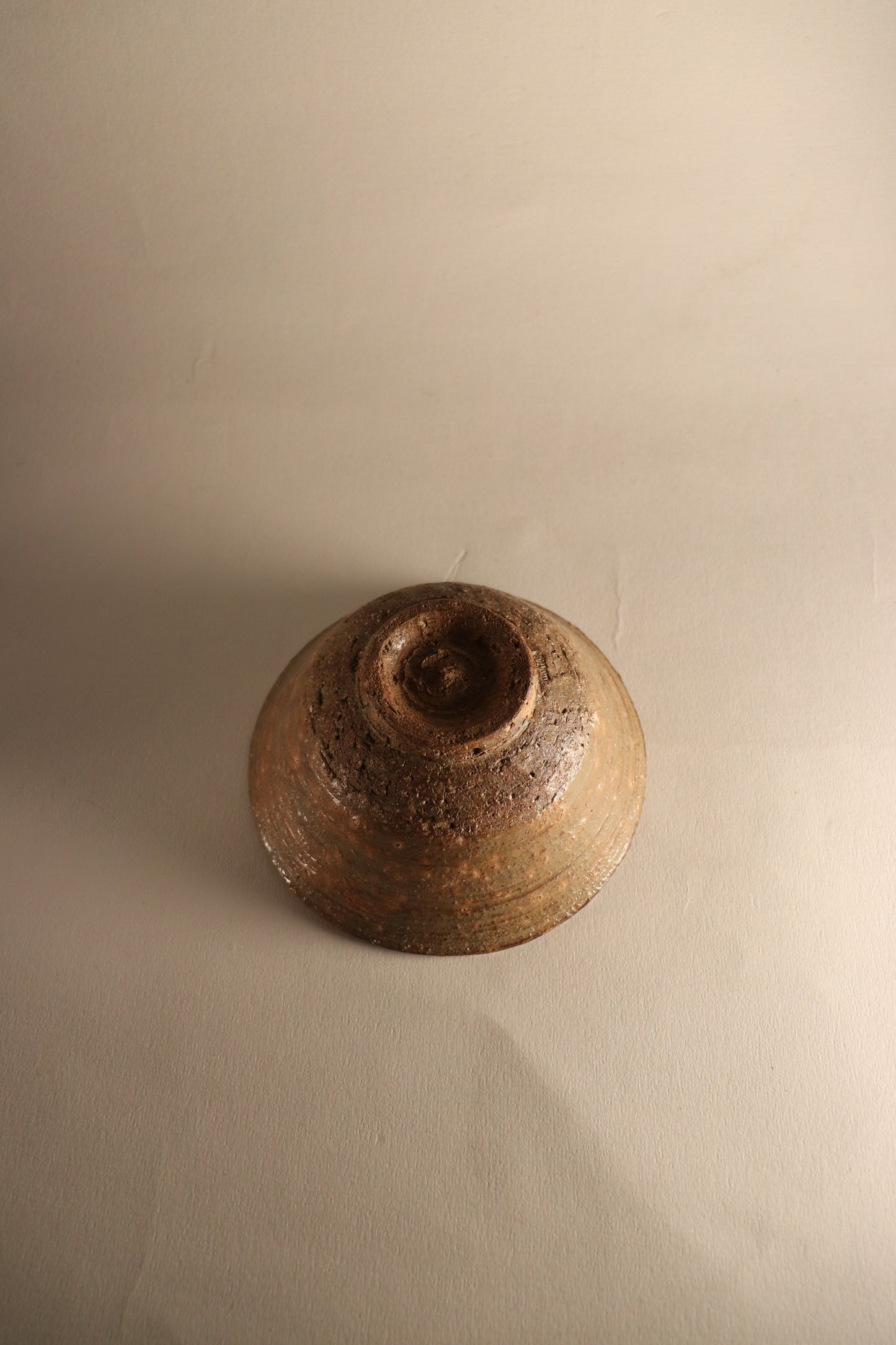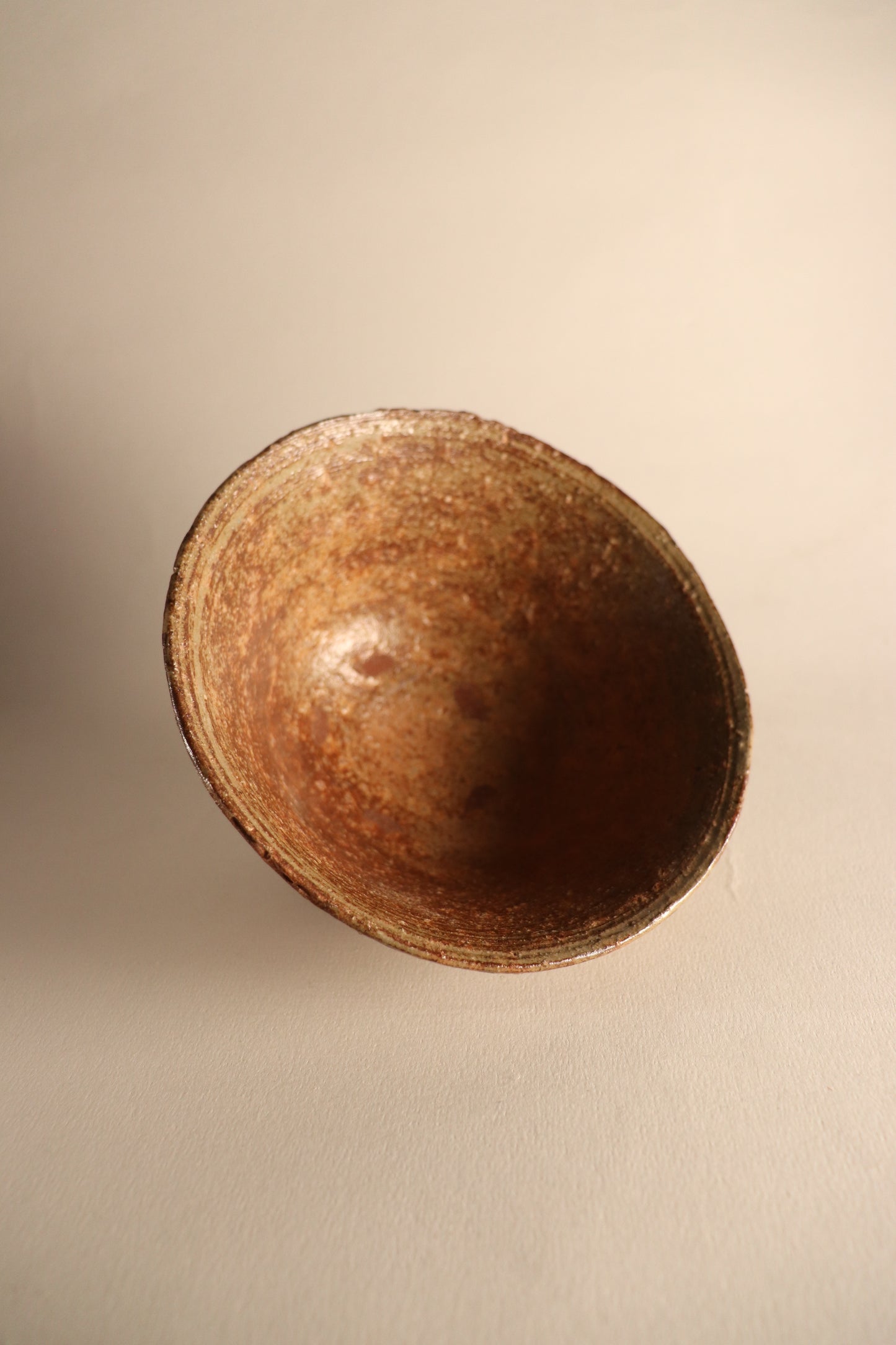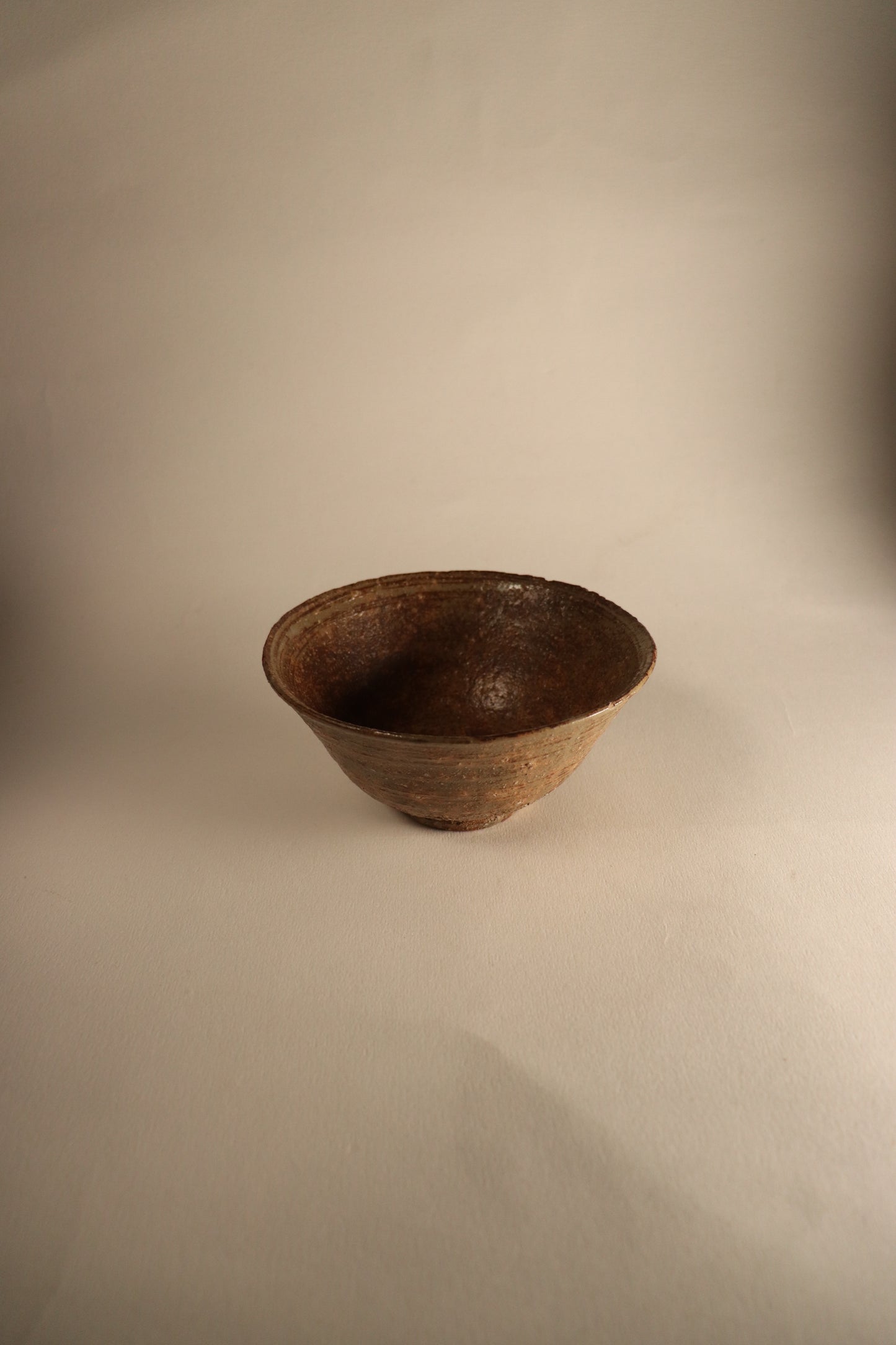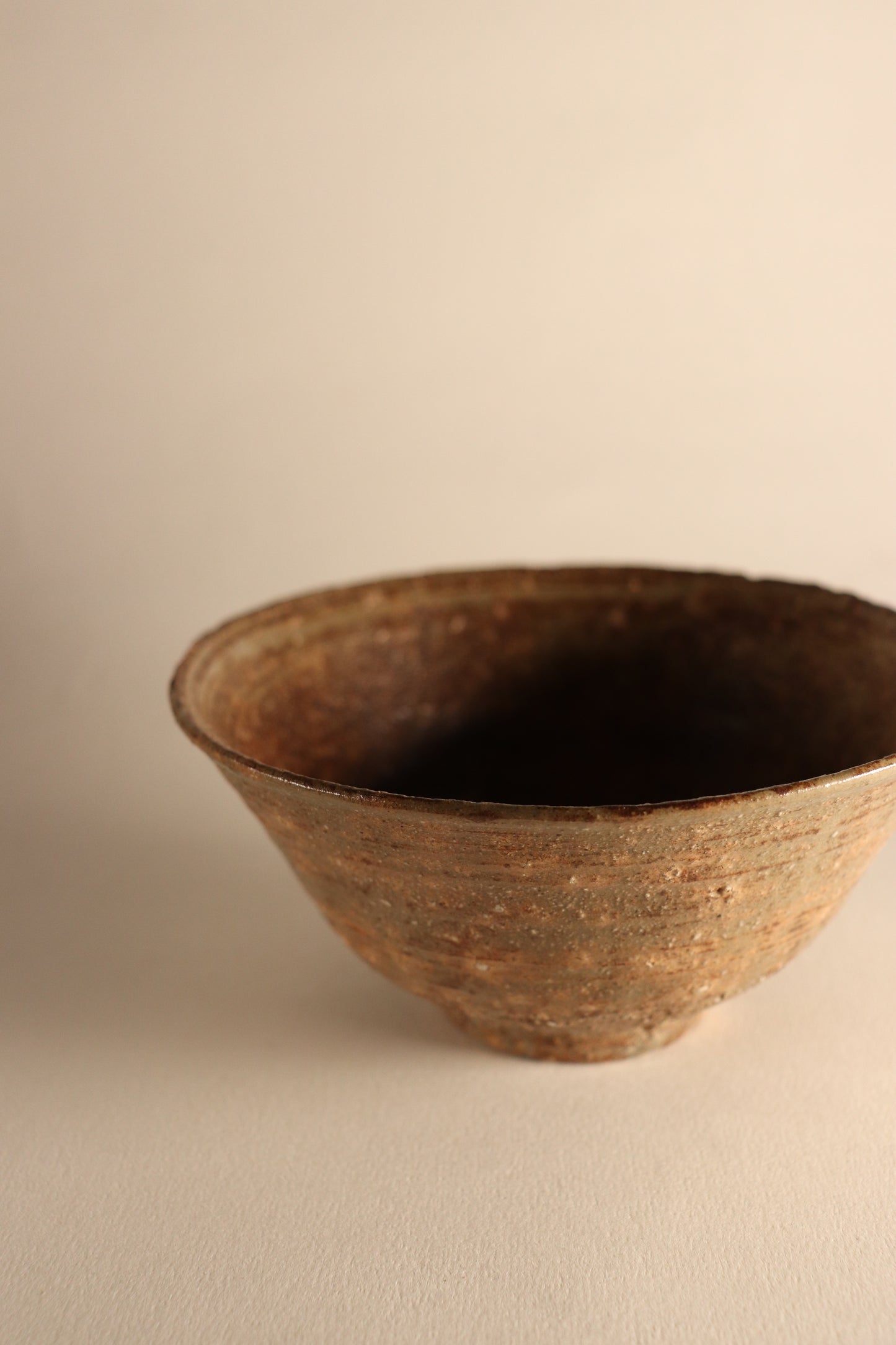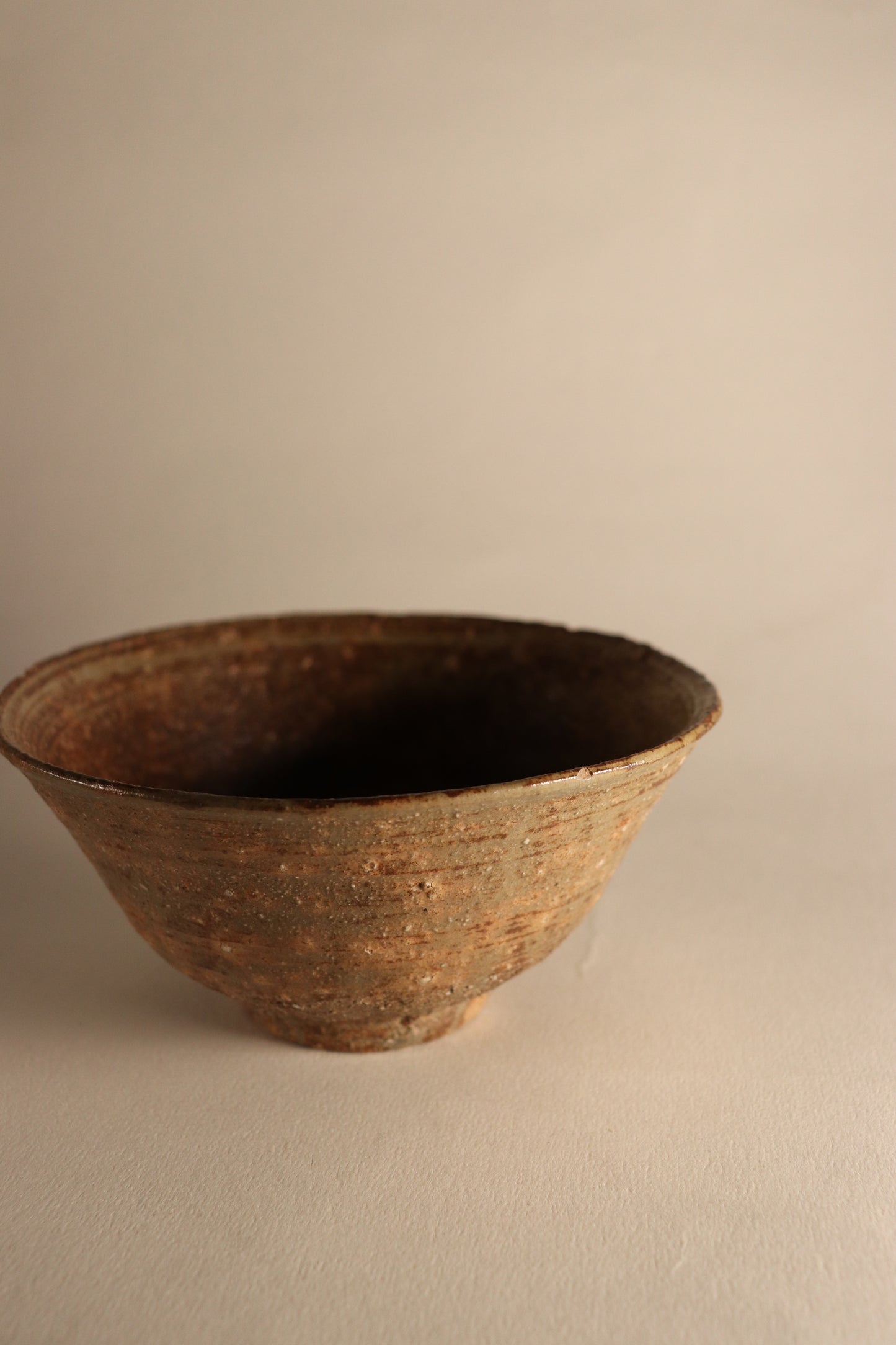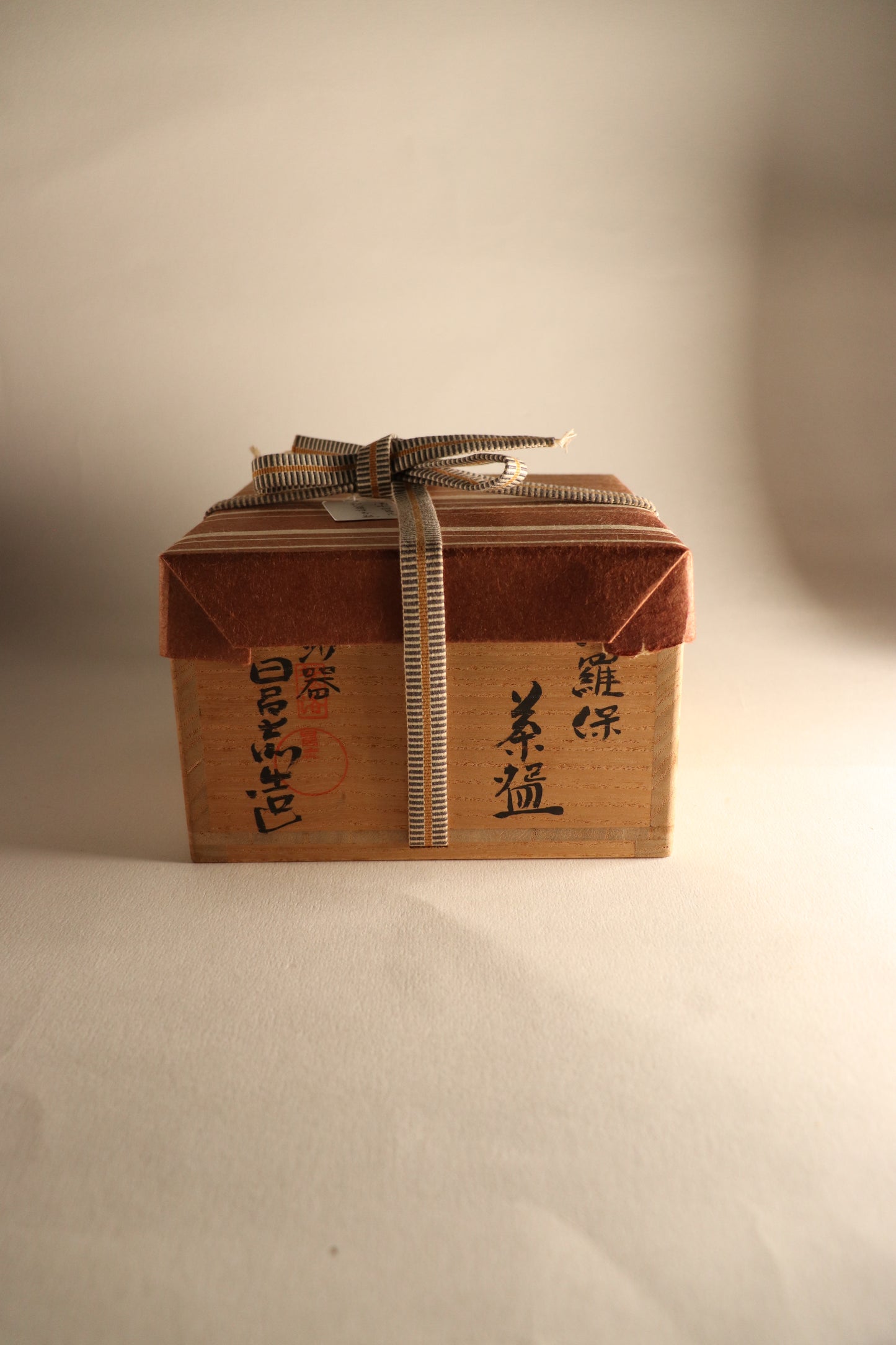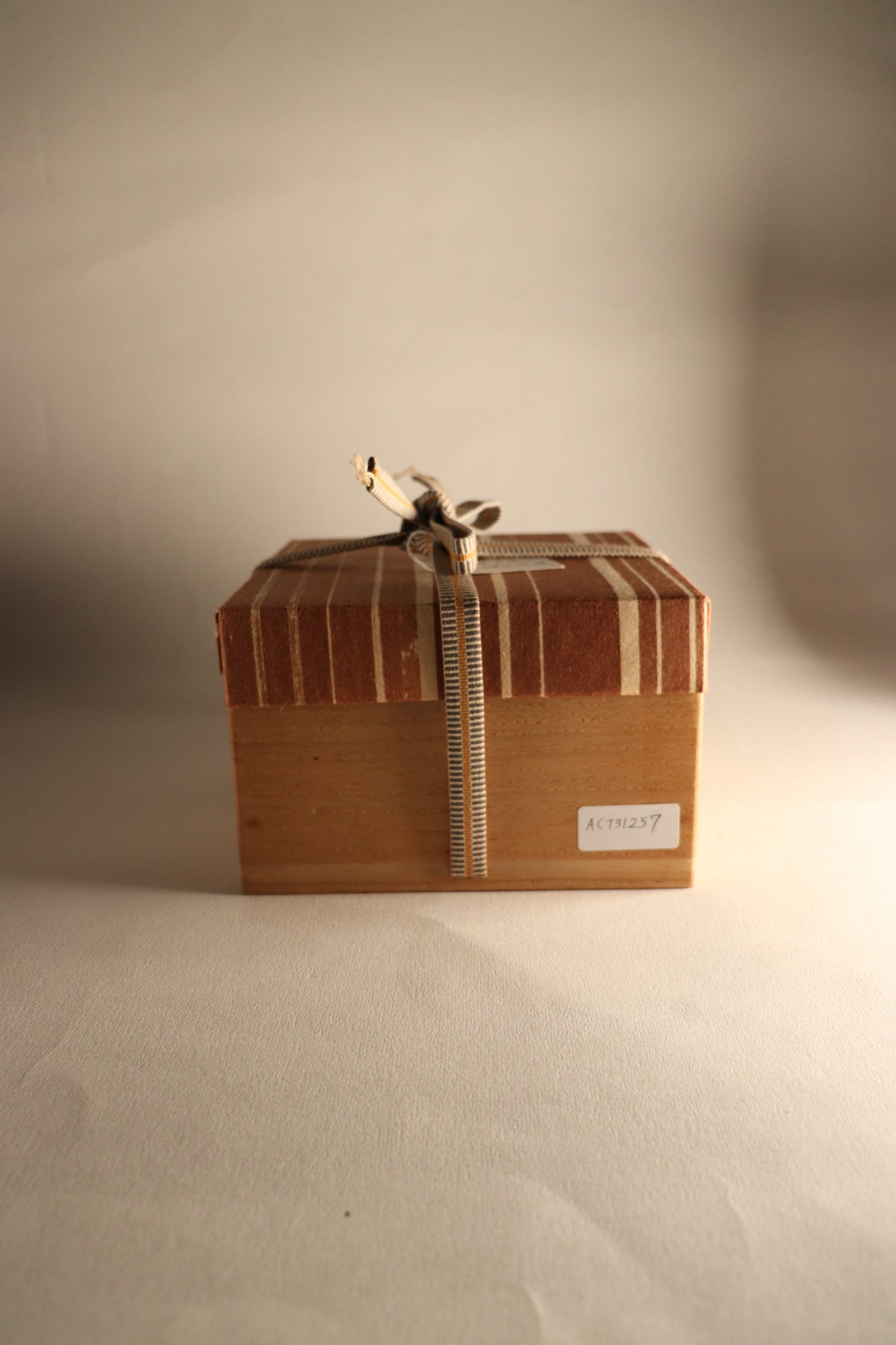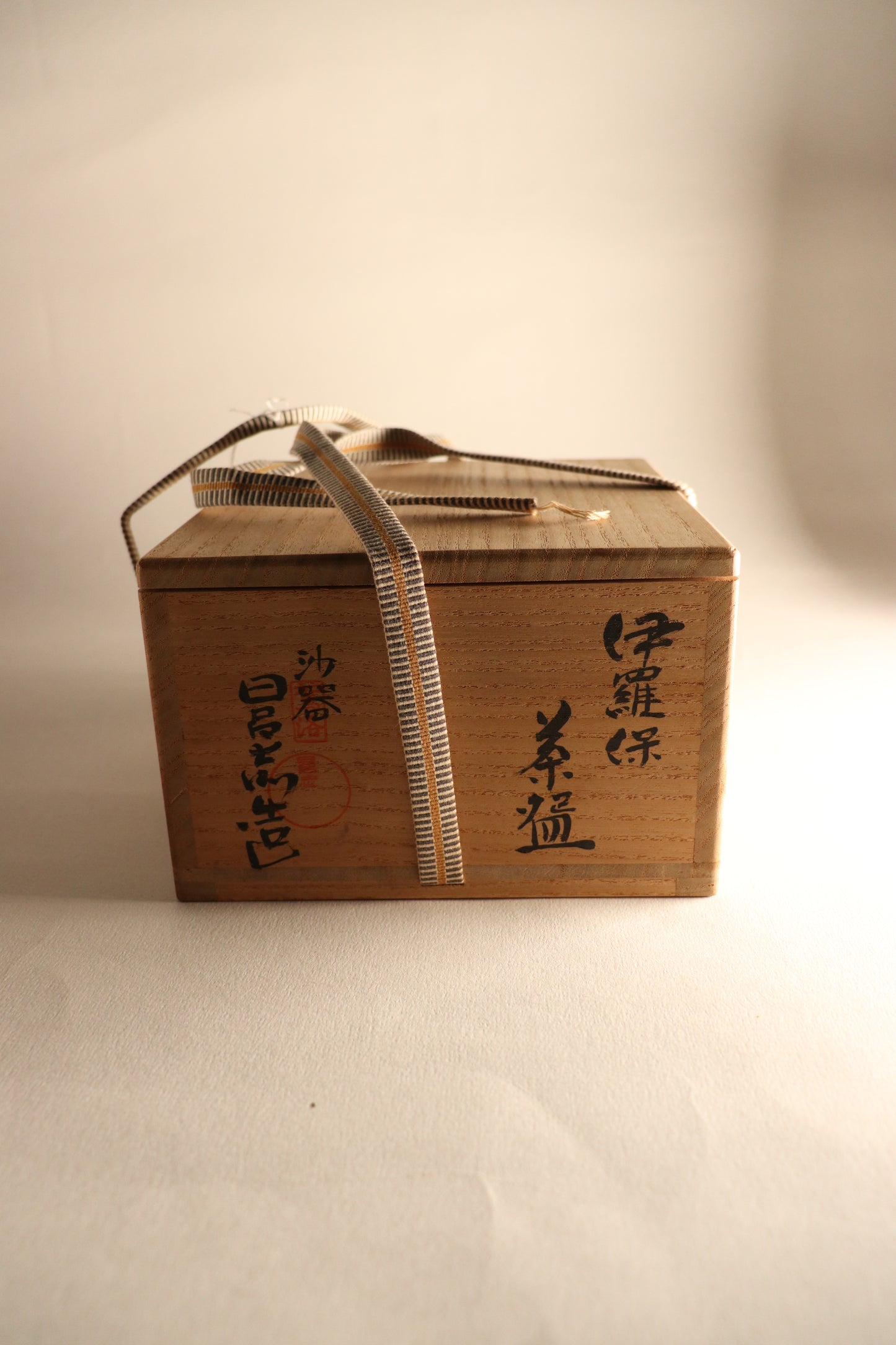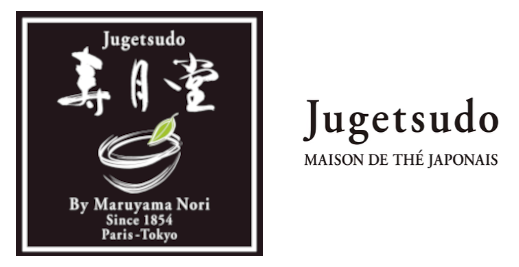Jugetsudo
Bol à matcha / Banko yaki SHIMIZU HIROSHI "IRAHO"
Bol à matcha / Banko yaki SHIMIZU HIROSHI "IRAHO"
Couldn't load pickup availability
Attention, cet article est une pièce unique.
Ce bol à matcha de type Irobo chawan (伊羅保茶碗) a été façonné par Shimizu Hiroshi (清水日呂志, né en 1941), maître potier de la région de Mie et héritier de la lignée du premier Shimizu Rakuzan, fondateur d’un des fours historiques du Banko-yaki. Connu pour avoir introduit dans cette tradition la céramique de style coréen dite Kōraide (高麗手), Shimizu a profondément renouvelé le regard du monde du thé sur le Banko-yaki, lui conférant une dimension plus rustique et spirituelle, fidèle à l’esthétique du wabi-cha.
Après une formation initiale auprès de son grand-père, il perfectionna son art par de nombreux apprentissages dans les fours de Takatori, Tanba et Hagi, avant de fonder en 1970 son propre four à Komono (Mie). En 1974, il établit un nouveau four à Gimhae, près de Busan en Corée, sous le nom de Karaku-gama, titre qui lui fut donné par le maître Tayama Hōnan. Par la suite, il érigea le Rakuzan-gama d’Odaka, perché dans les montagnes de Mie, d’où il continua à produire des pièces destinées à la cérémonie du thé, alliant profondeur du feu et sensibilité du geste.
Le style Irobo, né dans la péninsule coréenne à l’époque Joseon, est caractérisé par une terre mêlée de grains de sable et une glaçure irrégulière, donnant à la surface une texture granuleuse et une apparence « piquée » qui exprime la vigueur et la rusticité du matériau. Sa forme ouverte, au large pied et au bord légèrement rentrant, évoque les bols commandés spécialement pour le thé dès le XVIIe siècle, adaptés à la main et au regard du buveur.
Dans ce bol, Shimizu Hiroshi fait revivre cette tradition en y insufflant une chaleur et une sincérité typiques du Mie moderne. La matière semble respirer, le toucher est rugueux mais vivant, et la teinte brune tirant vers le miel capte la lumière du feu. C’est une œuvre qui conjugue la simplicité du Kōraide et la profondeur du Banko-yaki, entre héritage, expérimentation et esprit du thé.
Matcha Bowl — Irobo Chawan (Kōraide Style)
Shimizu Hiroshi — Karaku Kiln, Komono, Mie Prefecture
This matcha bowl, crafted in the Irobo chawan style, is the work of Shimizu Hiroshi (born 1941), a master potter from Mie Prefecture and grandson of the first Shimizu Rakuzan, founder of one of the traditional Banko-yaki kilns. Shimizu is renowned for being the first to introduce Kōraide-style (Korean-influenced) tea ceramics into Banko ware, earning deep respect from the tea community for bridging rustic Korean aesthetics with refined Japanese tea culture.
After apprenticing under his grandfather, he trained in several historic pottery centers — Takatori, Tanba, and Hagi — before founding his own kiln in Komono in 1970. Later, he established the Karaku Kiln near Busan, South Korea, and subsequently the Odaka Rakuzan Kiln in the mountains of Mie, producing works that blend Japanese subtlety with Korean vitality.
The Irobo style, originating in Korea’s Joseon dynasty, is known for its sandy clay body and rough glaze texture, where the firing process creates natural pits and uneven surfaces — features admired for their wild and powerful presence. The bowl’s broad foot and gently inward-curving lip make it both visually balanced and pleasant to handle, qualities prized in tea ceremony vessels.
Through this piece, Shimizu Hiroshi revives the spirit of Irobo with sincerity and restraint. The bowl’s coarse yet inviting texture, warm amber tones, and organic form capture the essence of wabi-cha — the beauty of simplicity, imperfection, and the living dialogue between earth and fire.
Share
